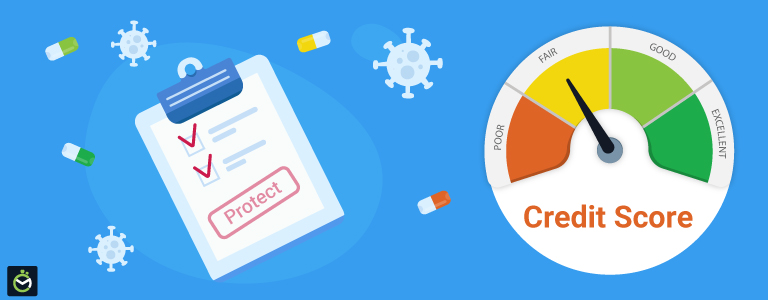The Coronavirus pandemic has resulted in unprecedented economic hardships for people from all walks of life. All around the world, millions of people lost their jobs or source of income during this time. And due to this, many people struggled to make their loan repayments or pay their credit card dues on time.
Although the government announced a relaxation or moratorium period for borrowers, your credit score may face the consequences. Read on to learn more about this.

What is the moratorium?
The Reserve Bank of India announced a moratorium period for loan borrowers to provide them with some respite during the COVID-19 pandemic. Borrowers were given relaxation to delay payments on different loans and credit cards. Thus, RBI announced that choosing the moratorium facility will not directly impact your credit score, and the deferred payments will not be considered defaults.
But here’s the catch! The deferred payments will be accepted if your lender informs the credit bureau. Plus, credit reporting mistakes are not uncommon. So, how do you maintain your creditworthiness during this time? Let’s find out.
How to maintain your credit rating during the pandemic
Keep a tab on your score
First off, you must keep a CIBIL score check during a time when your income fluctuates. This can include salary cuts, layoffs and more. Basically, it is crucial to know where your creditworthiness stands to avoid discrepancies.
Pay off credit card debts
You must pay off your credit card dues whenever possible, even during a pandemic or crisis. That’s because if ignored, the debt and the accrued interest will pile on and become even more challenging to pay off later. And as you know, any late payment can negatively impact your CIBIL score.
Avoid withdrawing cash with your credit card
Although it is an option, credit card withdrawals are not recommended. Why? Because withdrawing cash with your credit card comes with many additional charges like the cash advance fee, late payment fee and more. And repaying the advance amount with a higher interest rate can affect your creditworthiness to an extent.
Opt for moratorium feature if necessary
If you have experienced a financial crisis, such as a halt in your regular income, only then you should opt for the moratorium. This is because you will also have to pay the interest that is accrued during the moratorium period.
The bottom line
At the onset of the pandemic, millions of people experienced both medical and financial emergencies. And while struggling to make ends meet, loan borrowers suffered the hardship of repaying their loan EMIs. Thus, it makes sense that the credit score of many consumers dropped during this time.
If you are someone whose creditworthiness has been affected negatively, follow the tips mentioned above to get back on track. Lastly, don’t forget to keep a credit score check to fully know your credit profile and financial health.
 2018 ·
2018 ·